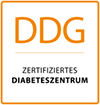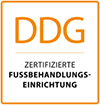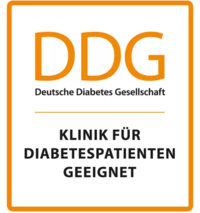Diagnostic of Colon Cancer
Treatment prices are regulated by national law of the corresponding countries, but can also include additional hospital coefficients. In order to receive the individual cost calculation, please send us the request and medical records.

Department of Gastroenterology, Hepatology and Infectology
The Department of Gastroenterology, Hepatology and Infectology offers the widest range of diagnostic examinations and treatments for patients with diseases of the gastrointestinal tract, liver, biliary tract, as well as infectious diseases. The department operates the specialized Endoscopy Center, which serves for diagnostic and therapeutic procedures. There is also the Laboratory for Functional Gastrointestinal Diagnostics. The modern technical base and the exceptional professionalism of doctors make it possible to guarantee an optimal result for each patient.






Department of Gastroenterology, Hepatology and Infectology
The Department of Gastroenterology, Hepatology and Infectology offers the full range of diagnostics and treatment of diseases of the liver, pancreas, and other organs of the gastrointestinal tract. In addition, of particular interest is the treatment of cancer pathologies of the esophagus, stomach, intestines, pancreas and liver. The department is a supraregional center for the diagnostics, research and treatment of chronic liver diseases and their complications, as well as the certified Infectology Center, within which all types of hepatitis, HIV, and tropical infectious diseases are treated.






Department of Gastroenterology and Hepatology
The Department of Gastroenterology and Hepatology offers the full range of medical services in the areas of its specialization. The department's doctors carry out the prevention, diagnostics, and treatment of diseases of the gastrointestinal tract, including the liver, gallbladder, biliary tract, esophagus, and pancreas. Diagnostic options include ultrasound scans and functional tests, as well as modern endoscopic procedures that allow for making an accurate diagnosis and prescribing effective therapy. As for the treatment, the department offers patients effective drug therapy and many endoscopic interventions. Based on an independent assessment by Newsweek, an American weekly online news magazine, the department is recognized as one of the best in the world at treating gastroenterological diseases. In addition, the department is certified by the German Cancer Society (DKG) in the treatment of gastrointestinal and liver cancers. The medical facility has a high level of trust among patients, and the number of people wishing to receive medical care here is steadily growing every year.






Colon cancer or colorectal cancer is a common oncological disease that takes many lives. In recent years, its diagnostics and treatment have been significantly improved. Thanks to screening in developed countries, up to 40% of cases of colorectal cancer are detected in the early stages, which makes treatment more successful: five-year survival of such patients reaches 90% and higher. In a locally advanced oncological process, this indicator averages 70%.
Is it possible to detect colon cancer in the initial stage?
Colon cancer is a controlled disease. The disease can be easily diagnosed at an early stage, but to do it one should undergo a preventive examination, even before the onset of symptoms. The reason for it is that the appearance of clinical signs indicates the presence of a large tumor in the intestine that could spread to neighboring organs and to distant parts of the body.
Colon cancer can not only be detected early, but even prevented. It is extremely rare that a tumor grows from an unchanged mucous membrane. In most cases, it develops from a colon polyp. A polyp exists 10-15 years before a malignancy begins to grow from it. This is quite a sufficient period to detect the precancerous process and remove the polyp, thereby preventing its malignancy.
The hospitals abroad apply the comprehensive oncological and gastroenterological screening programs. These include colonoscopy. This is the main method for diagnosing colon cancer. Colonoscopy can be used for both polyp detection and removal. It is also effective for detecting small tumors in the initial stage, which respond well to the surgical treatment.
Here are some of examples of cases when screening may be needed:
- all patients from 45 to 85 years old;
- up to 45 years old with a complicated family medical history;
- due to chronic inflammatory bowel diseases (ulcerative colitis, Crohn's disease);
- hereditary syndromes associated with colon cancer;
- abdominal irradiation in the medical history, regardless of cause.
The best hospitals in Germany offer health check-up programs. This country is distinguished by very accurate diagnostic examinations. The hospitals in this country are staffed by highly qualified doctors who will not miss cancer or precancerous processes, if any. When detecting a malignancy in Germany, one can undergo treatment using advanced methods.
In advanced stages of cancer, a person has the opportunity to take part in clinical trials. It is likely that the very latest cancer treatments that are only being tested will be more successful than those that are generally accepted at present.
Here is a complete list of colon cancer screening methods and the recommended frequency of diagnostic measures:
- fecal occult blood test – once a year;
- fecal immunochemical test (FIT) – every year;
- MT-sDNA testing – once every 3 years;
- colonoscopy – once every 10 years;
- virtual colonoscopy as an alternative to the common one – every 5 years.
Symptoms
People who do not undergo screening usually see a doctor only after the onset of symptoms. Even in developed countries, the number of such patients amounts up to 60% or more. In developing countries, their number often exceeds 90%.
The onset of symptoms usually indicates at least a locally advanced form of colorectal cancer. It is still treatable in the best hospitals in the world with surgery and other methods. Nonetheless, the effectiveness of surgical procedures and the relapse-free five-year survival of patients is less than in case of early detection of localized cancer.
The main symptoms of the disease are:
- diarrhea or constipation;
- difficulty bowel movements;
- feeling of full intestines;
- blood in the stool;
- abdominal cramping;
- weakness and fatigue;
- weight loss due to digestive disorders and loss of appetite.
Confirmation and clarification of the diagnosis
Targeted diagnostics can be prescribed to patients who:
- had positive screening results (for example, occult blood detected in the feces);
- consulted a doctor with complaints and objective symptoms that may indicate colon cancer.
The main diagnostic method for colorectal cancer remains colonoscopy. If it is expected that the tumor is localized in the distal colon, rectoscopy or sigmoidoscopy can be performed as well. When conducting an endoscopic examination, the doctor will also sample tissues for biopsy. The biopsy sample will be sent for a histological examination. It serves to confirm the diagnosis, determine the histological type of the neoplasm.
In developed countries, including Germany, the doctors use additional methods, which allow for a better treatment planning and predicting the effectiveness of therapeutic measures. Thus, they can use:
- genetic testing to detect changes in the KRAS and NRAS and BRAF genes;
- MSI and MMR testing (for microsatellite instability).
An important diagnostic task is to assess the spread of the oncological process. It cannot be evaluated using endoscopic examinations, since with these methods the doctor can see only that part of the tumor, which protrudes into the lumen of the colon. The following methods can be used for staging:
- computed tomography;
- ultrasound;
- MRI.
To obtain more accurate information, MRI can be conducted using contrast agents or an endorectal coil placed inside the rectum.
Ultrasound can be performed transabdominally. To obtain more accurate information, an ultrasound is performed using a sensor placed in the intestine. In Germany, doctors often use intraoperative ultrasound, which allows the doctor to detect metastases invisible to him directly during surgery and remove them, thereby preventing relapse of the neoplasm.
Additional diagnostic methods:
- chest x-ray to detect metastatic lung lesions;
- PET to detect metastases in parts of the body remote from the intestine;
- angiography to assess the blood supply to the tumor, in preparation for surgery, to assess the feasibility of chemoembolization of metastatic foci in the liver.
The diagnostics of colon cancer abroad, in developed countries, is highly accurate. Thanks to modern techniques, the doctors can detect the disease in the early stages. In case of late detection, the diagnostic procedures used allow the doctors to perfectly plan the treatment and achieve the best possible results, taking into account the clinical situation.
Diagnostics and treatment in Germany with Booking Health
Thanks to the Booking Health company, you can undergo examination or treatment at the best hospitals in Germany. The doctors abroad use advanced diagnostic and therapeutic procedures. They treat colon cancer using surgery, radiation therapy, intraoperative hyperthermic chemotherapy and targeted therapy.
When using our services, you will benefit from the following services and advantages:
- Selection of the best hospital in Germany, which specializes in colon surgery, chemotherapy, radiation therapy, targeted therapy for cancers.
- Surgery and other medical services at reduced prices due to the absence of extra charges and coefficients for foreign patients.
- Establishment of communication with an attending physician.
- Preparation of the program taking into account previously performed medical procedures.
- Appointment with a doctor on convenient dates.
- Control of the program at all its stages (diagnostics, surgery, radiation therapy, targeted therapy, rehabilitation, etc.).
- Control of invoices and return of unspent funds.
- Organization of additional examinations.
- Buying and forwarding of medicines.
- Communication with the hospital upon treatment completion.
The Booking Health company will provide you with the highest level of service. Our specialists will book a hotel and airline tickets for you, arrange a transfer from the airport in Germany to the hospital and back, after the completion of the medical program.

